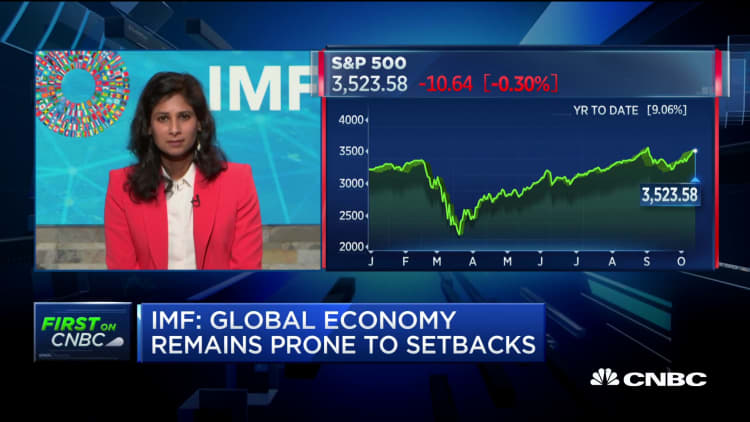South Africa now has less than a 33% chance of securing an IMF (International Monetary Fund) bailout this year, new research projects.
Having received $4.3 billion in emergency financing from the IMF so far in 2020, momentum toward a much-touted and wide-ranging bailout package seems to have ebbed in recent weeks.
The country is embarking on an ambitious economic reform agenda, hoping to stabilize a mounting debt profile while attempting to spur an economic recovery after the sharp downturn caused by the coronavirus pandemic.
"ANC hardliners and allies of former president Jacob Zuma remain steadfastly opposed to an IMF deal," said David Wille, principal analyst for financial sector risk at Verisk Maplecroft. The risk consultancy in its latest assessment earlier this week assigned a less than 33% chance of an IMF bailout for South Africa by the end of the year.
"However, their influence is likely to wane in the coming months as an ongoing anti-corruption drive targeting prominent Zuma associates, including current ANC Secretary General Elias Ace Magashule, gathers steam."
Zuma has been summoned to appear before a South African corruption inquiry from November 16 to November 20. The inquiry was set up two years ago to investigate allegations that during his time in office, Zuma enabled his associates the Gupta family to pilfer state resources.
Both parties have vehemently denied any wrongdoing, but Zuma's nine-year tenure as president ended in February 2018 when he was ousted by his ruling ANC (African National Congress). His successor, current President Cyril Ramaphosa, has since sought to restore investor confidence and transform his party's image.
Finance Minister Tito Mboweni has long emphasized the necessity of shoring up South Africa's economy in the aftermath of the pandemic. GDP (gross domestic product) is expected to contract by 8% in 2020, according to the IMF.

"This includes a newfound willingness to confront powerful trade unions over unsustainable civil service wages that consume 41% of government revenues," Wille said in the report earlier this week.
"These are signs that President Ramaphosa is keeping the door open to a potential IMF deal to finance the country's pandemic recovery efforts."
Wille said that although lower consensus forecasts and the limited time remaining to engineer a deal within Verisk's forecast horizon makes a deal this year unlikely, there is still scope for South Africa to secure further funding, including from the IMF, in 2021 and beyond.
On Tuesday, Ramaphosa held a roundtable discussion showcasing infrastructure projects in a bid to attract private sector interest and around 210 billion South African rand ($13.3 billion) in funding. The government is aiming to boost investment to around 23% of GDP by 2024 from its current figure of just over 16%, with the private sector accounting for 15% of GDP of that target.
Ramaphosa's Economic Reconstruction and Recovery Plan highlights four broad priority interventions intended to shore up the nation's economy. These include an infrastructure rollout, expanding energy capacity, direct employment stimulus, and stimulating industrial growth. Mboweni gave a budget update on October 28, outlining the country's troubling fiscal position and plans to right the ship.
"A less ambitious (relative to the 'active' scenario put forward in June) albeit more credible (as it looks more attainable given announced budget cuts) fiscal trajectory was communicated, which leaves little room for error and will require the Treasury to walk a tightrope in order to avoid a sovereign credit crisis," NKC African Economics Head of Africa Macro Jacques Nel said in a research note Wednesday.
"Budget cuts mean that service delivery will undoubtedly suffer next year and there is little money for recurrent spending, let alone public investment."

